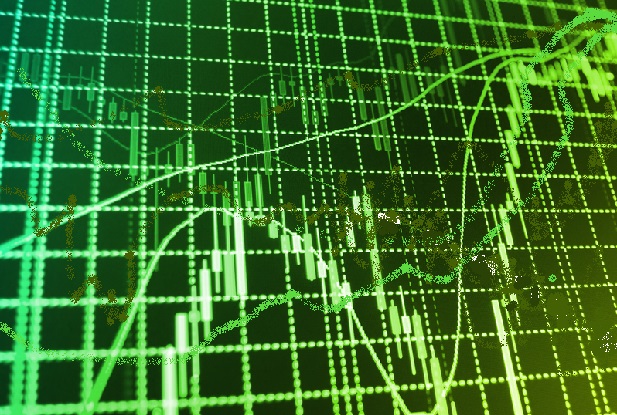We're living in a time of global economic upheaval, with small businesses dead or on life support and medium and larger businesses trying to decide what and where to additionally cut, after taking earlier cost-cutting measures. Some decisions made by businesses have aroused public ire. Others, plaudits. People are increasingly aware of companies that make decisions that take into consideration their employees, their communities, and the environment.
Even before COVID-19, a growing number of investors had some exposure to environmental, social, governance factors impacting investments in their portfolios — both individual and institutional investors. Now that the pandemic has increased focus on the "how" of doing business, will that lead to an increased awareness of ESG investing, impact investing, and socially responsible investing?
No one can say for sure how the pandemic will affect anything in the long term. But it's safe to say that investment decision-making that takes into account how a company behaves in additional areas besides shareholder profitmaking is here to stay. And this particular field of investing is growing.
Two financial advisors who are involved with various aspects of socially responsible and/or ESG investing are Wealthspire Advisors professionals Tim Hughes and Dmitriy Katsnelson. Their answers to the questions below offer insights on how and why such investment is growing.
Tim Hughes, CFP has over 19 years of experience tailoring to the goals of business owners, families, real estate developers, profit sharing plans, and retirees, and is managing director with the firm. Dmitriy Katsnelson brings more than 15 years of experience in financial services and is deputy chief investment officer with the firm.
BenefitsPRO: People see these terms defined in various ways, sometimes used interchangeably: ESG, impact or sustainable investing, SRI. What is your preferred term?
Tim Hughes and Dmitriy Katsnelson: As this industry has grown, it has improved with increased resources, expanded capabilities and heightened investor awareness. With this progress, the labels and approaches have evolved from SRI to ESG to Shared Values to Impact Investing.
We appreciate the subtle differences in the names. But with so many nuanced meanings we prefer to keep it simple by using 'Impact Investing,' which we believe is more general and represents the accumulation of prior progress and future best thinking.
Impact investing has a goal of earning a positive return while also making a positive impact with one's capital that preferably matches an investor's values. We've come a long way from simply employing investments that have negative screening to avoid certain industries such as alcohol, tobacco, firearms, etc. Today it's more about sophisticated investors driving outcomes through an active, values-driven strategy.
Could you tell a little about your background? And how did you get into the ESG, that is, Impact Investing space?
Dmitriy: I've been part of Wealthspire Advisors' investment team for over five years. I spent the prior decade at a research and investment consulting firm whose clients ranged from small regional advisors to national RIAs and banks. Throughout many roles, I chaired the SRI investment committee and model management, which required broad knowledge of the strategies, funds and managers in the SRI space.
Tim: I've been with the Wealthspire Advisors team for over 13 years and work as an advisor in our Reston, Virginia office. One of my passions is environmental sustainability, which led me to follow the clean energy industry and the ongoing disruption of battery storage, as well as traditional renewables like solar and wind.
What is the company's philosophy around this type of investing?
As a company we are excited to have a thoughtful investment offering and are committed to continuing to improve and evolve our approach. We believe that many of our charitably inclined clients want to give philanthropically to causes aligned with their values and invest accordingly to amplify the impact. Part of our job is to understand what clients value and offer them a path that aligns well with their needs.
What misconceptions are you still seeing around ESG investing/impact investing/SRI?
There is a perception among some in the financial advisory community that impact investing underperforms more than traditional investing. In our view, the argument should not be whether the investment outperforms, but whether one's investments align with their values. Returns matter, but the actual impact can't always be seen on a quarterly statement.
It's always important to frame outperformance or underperformance in the context of what the client is trying to achieve. That said, we have seen areas of outperformance long-term and thus far in 2020. The Wall Street Journal recently highlighted the outperformance during the recent COVID-19-related drawdown on May 12.
What are the benefits of being in the ESG space?
It's inspiring to learn about the problems being solved by companies working in tandem with activist Impact Investors. Further, to see those companies behaving as good stewards in areas that make this world better – and being rewarded with increasing share prices – only increases our personal conviction.
What are the challenges?
Although the ability to measure impact has greatly improved, it can still be a challenge for clients to see the tangible benefits. It's important to remember that values are not a short-term endeavor. Some of the benefits take time to emerge.
Additionally, there's no 'one size fits all' approach, as different investors have different priorities. As a result, there is some element of allowing discretion to the investment manager.
What trends are you seeing in this space?
The role of activists has certainly evolved, especially as awareness has increased. Consumer awareness about sensitive issues leads to increased 'voting' with their wallets on purchasing decisions. We see this trend only continuing in the future.
Another trend is the way social media is playing a large role with different campaigns to influence (think of items 'going viral' and the importance of companies to be on point at all times). Also, with increasing transparency into corporate actions, larger companies gaining larger influence, and a culture of increasing awareness and accountability, we see the pressure companies feel to be better corporate citizens only increasing.
Overall, the biggest trend we are seeing is that those companies are being rewarded for acting as great stewards and following the shared values of their stakeholders. Those that don't consistently demonstrate their values through action and listen to their stakeholders may have to evolve to survive.
Who typically is interested in it? Are institutional investors coming around to it, as far as you've seen?
Many surveys say millennials and women are more likely to be enthusiastic about Impact Investing, but our anecdotal observation shows much more diversity. There has been increased pressure on institutional investors to divest of certain industries that behave badly or increase investments in companies that are better corporate citizens.
How can people become more educated about it?
We believe there are huge opportunities out there to educate investors and help them understand Impact Investing.
The websites for Impact Investments have started to add more info on their investments relative to traditional benchmarks. The funds themselves have resources on their websites with great content. One example is a fund that chose to communicate how much less carbon intensity their portfolio has relative to a well-known benchmark. Others highlight proxy voting records on all sorts of topics. Engagement is a priority.
The information from third-party data aggregators has also improved, with the likes of Thomson, Morningstar, Bloomberg, Sustainalytics and many others providing data and scoring on several impact themes. This transparency and the stories that go along with their active engagement should be told on a broader scale.
Other ideas to advance awareness could be to increase the attention of Impact Investing in college classrooms or adding Impact Investing's role in the curriculum in CFA / CFP® / CIMA designations.
How is the coronavirus pandemic affecting this space?
As we mentioned earlier, Impact Investments have outperformed traditional benchmarks again on the downside, which has not gone unnoticed.
In fact, investments increased by $12B in the first four months of 2020, roughly twice the amount in 2019 (per WSJ article referenced above).
Although the pandemic has been a tragedy and we cannot thank our frontline workers enough for their care and courage, one of the silver linings of COVID-19 has been a temporary decrease in the use of fossil fuels, resulting in cleaner air from decreased nitrogen dioxide.
However, carbon dioxide levels have only continued to grow and there is a concern that the coronavirus could take resources from other areas that are also in great need.
National Geographic recently published "Pollution Made the Pandemic Worse but Lockdowns Clean the Sky," and referenced a WHO study that air pollution kills 7 million people per year globally, and how the lockdown has (temporarily) cleaned our air and helped flatten the curve for COVID-19.
What are some of the biggest differentiators within Impact Investing that have led to outperformance?
From a sector perspective, the energy sector is one differentiator. Although energy overall is now a smaller component of the S&P 500, many big energy companies such as Exxon have struggled mightily as competition from clean energy has continued to disrupt.
Part of that outperformance has also come from a structural underweight to commodity operators, who have struggled over the past 5-10 years.
Will there ever be one clear definition to encapsulate everything?
Probably not, but likely you will see more definitive requirements for sub-approaches. We have seen specificity with select religious approaches, but others are still a ways-off.
Could this wave spur a backlash?
It is certainly possible. Many impact themes have been co-opted politically, resulting in unnecessary polarization. We have seen red/blue funds, vice funds, etc. launch to try to take advantage of these disconnects. Not many have survived, but the appetite for profitability through discord does not seem to be waning at this point.
Will Impact Investing continue to play a bigger role in the investment management industry going forward?
Yes!
READ MORE:
© Touchpoint Markets, All Rights Reserved. Request academic re-use from www.copyright.com. All other uses, submit a request to [email protected]. For more inforrmation visit Asset & Logo Licensing.








